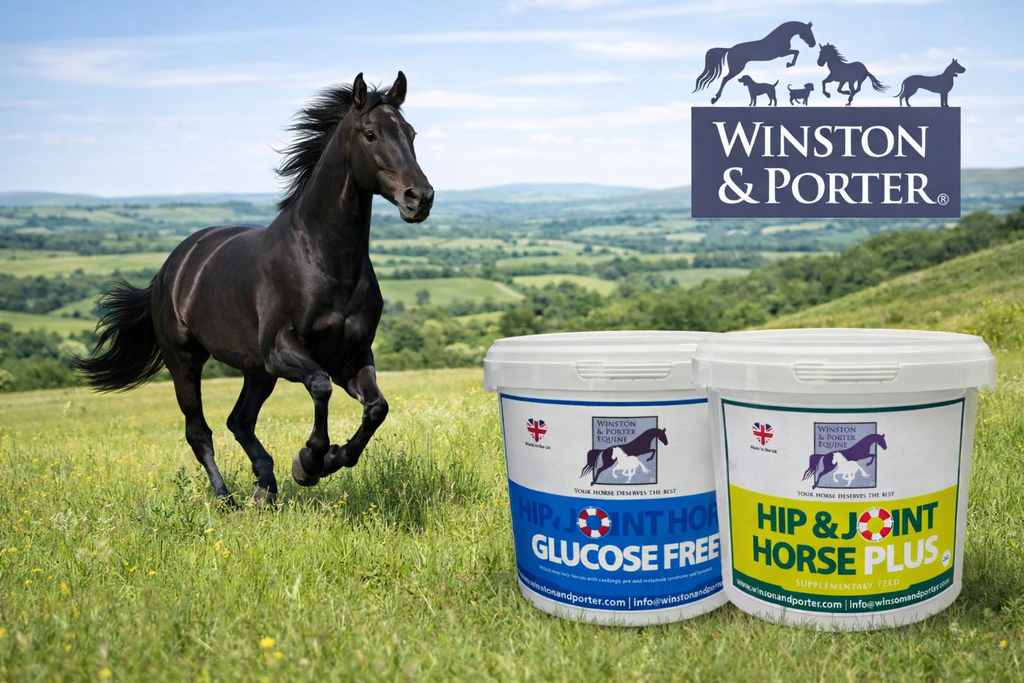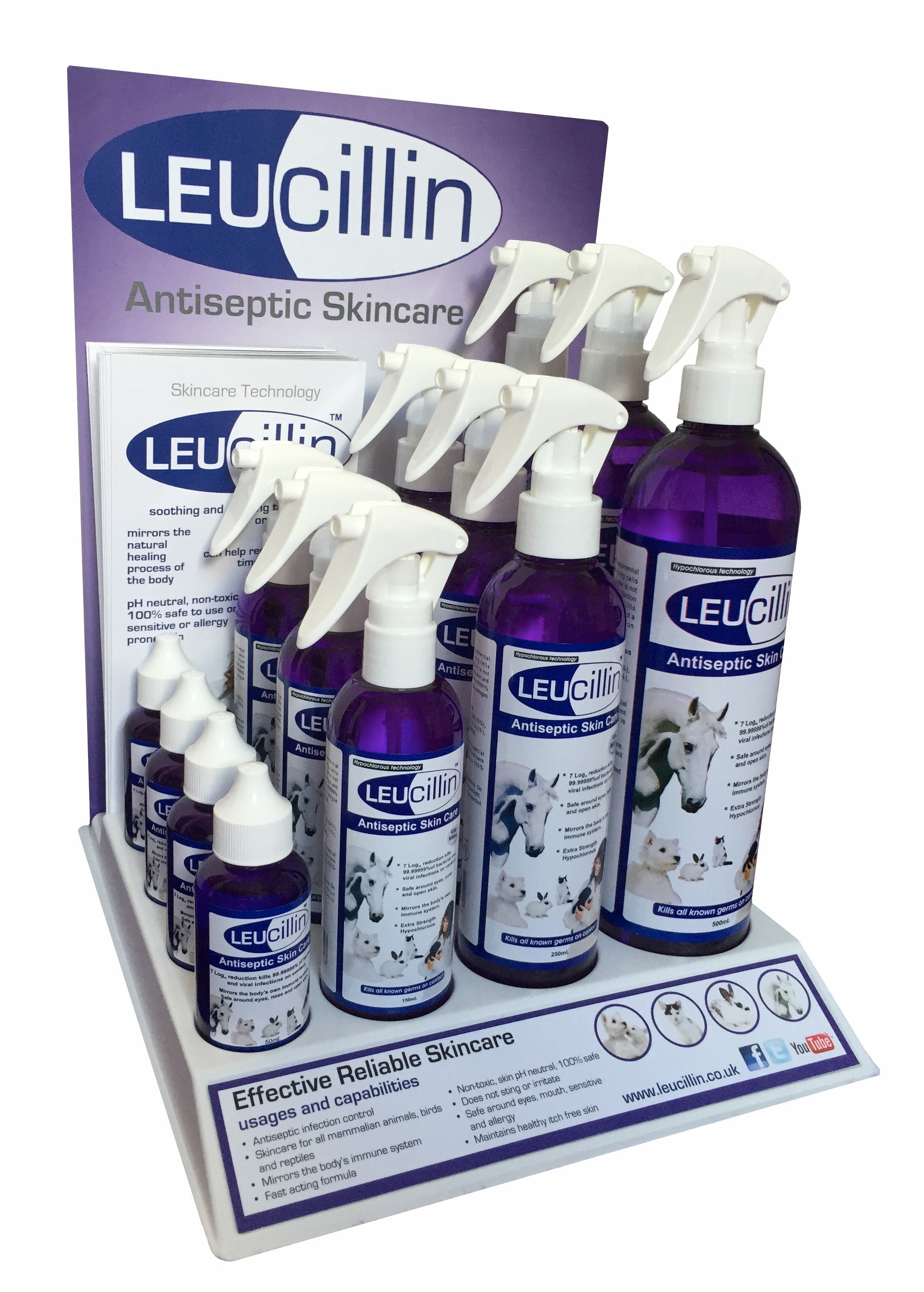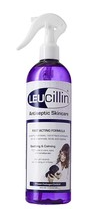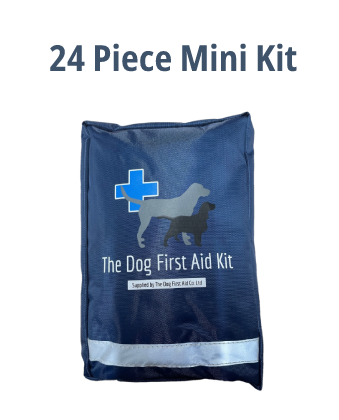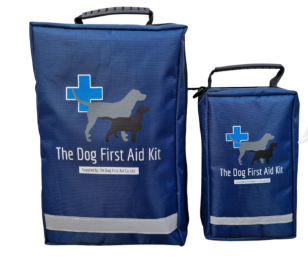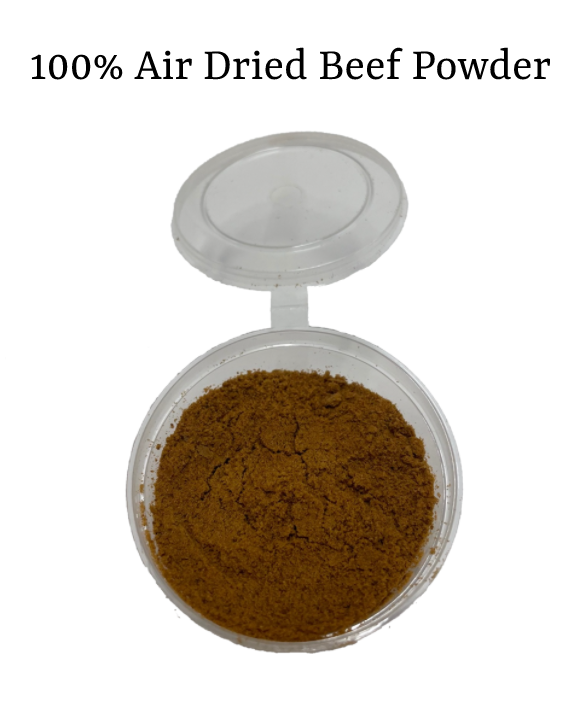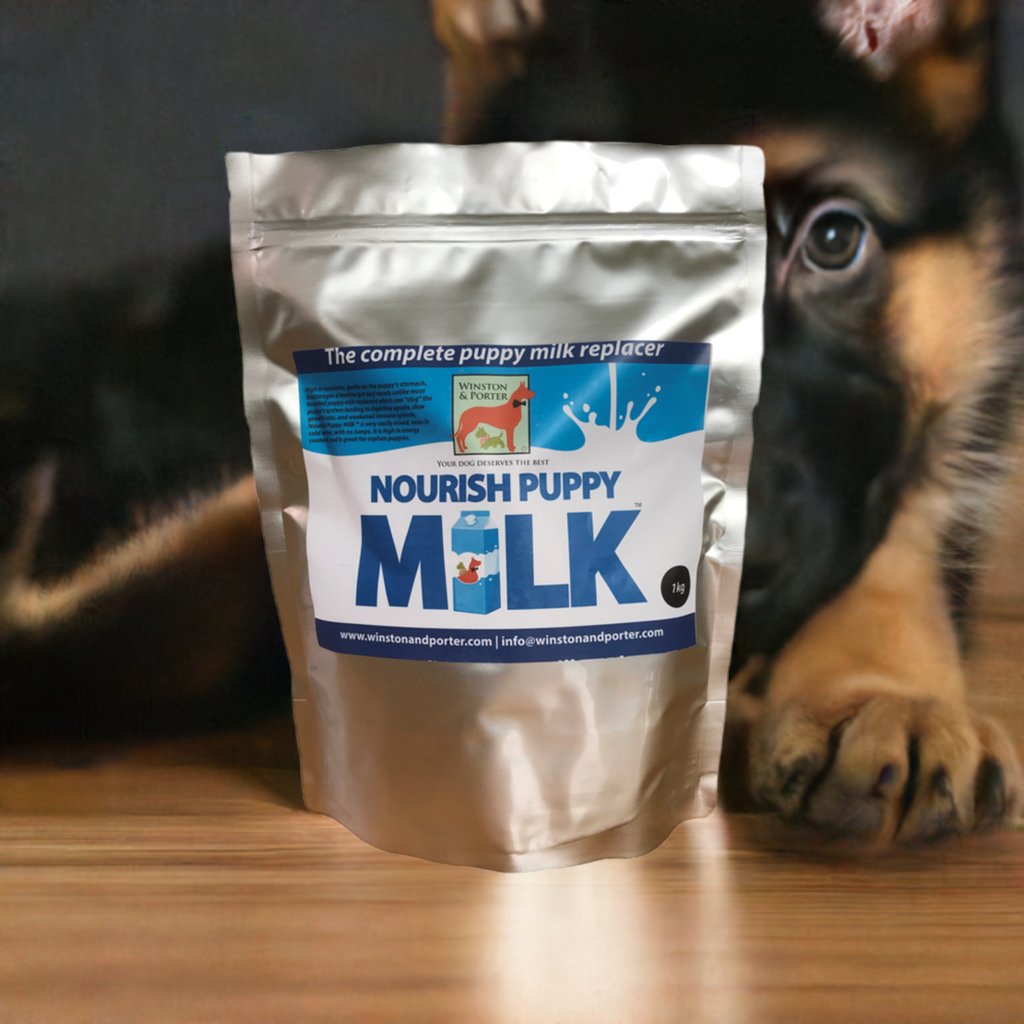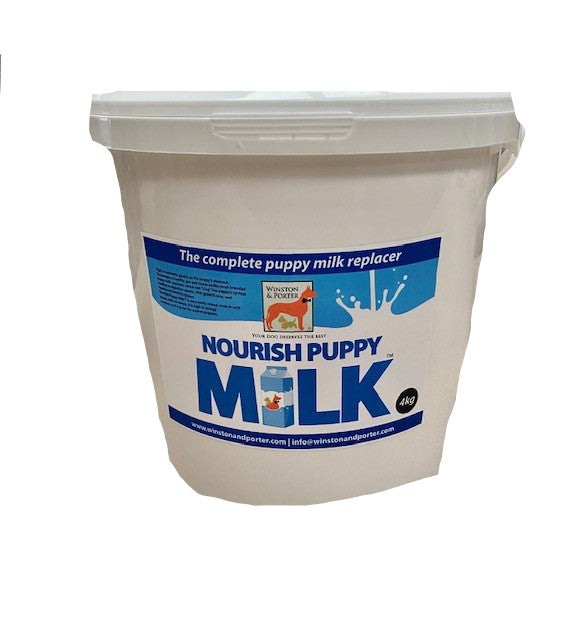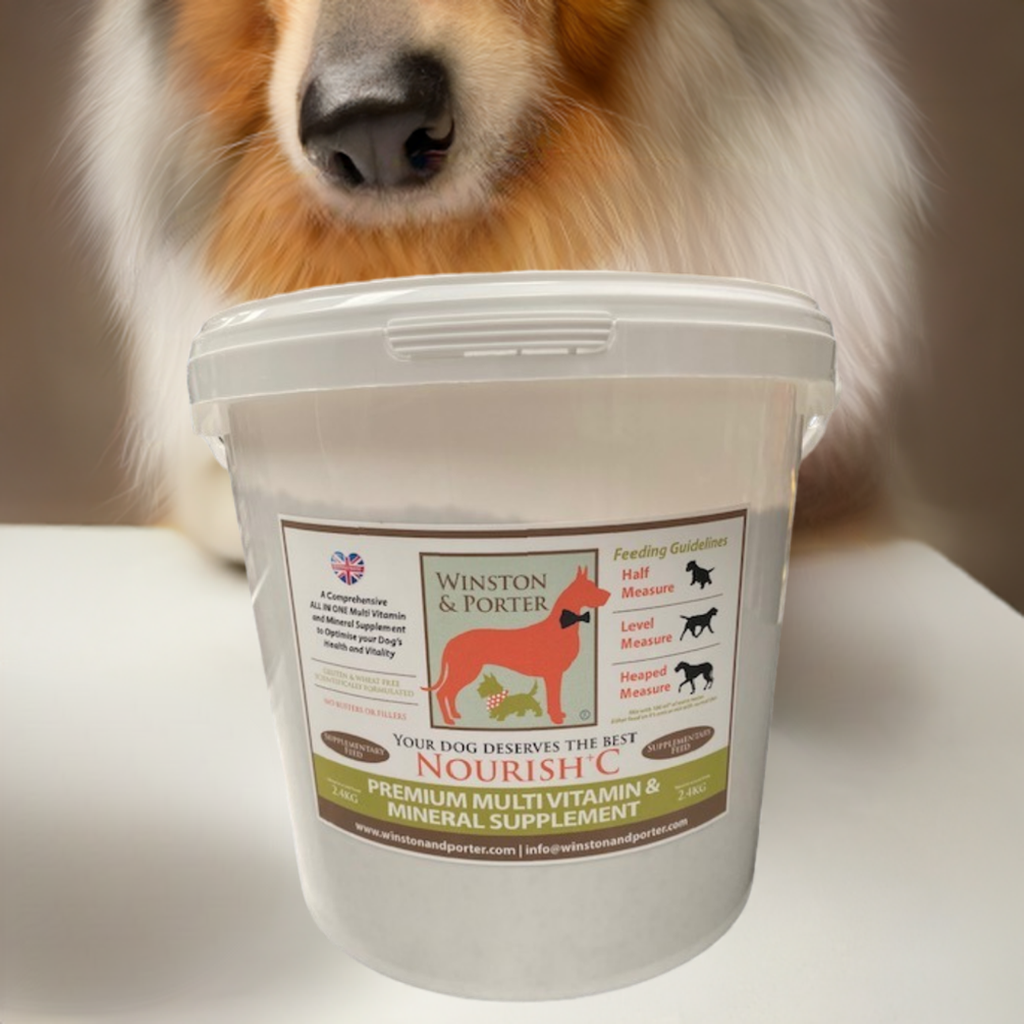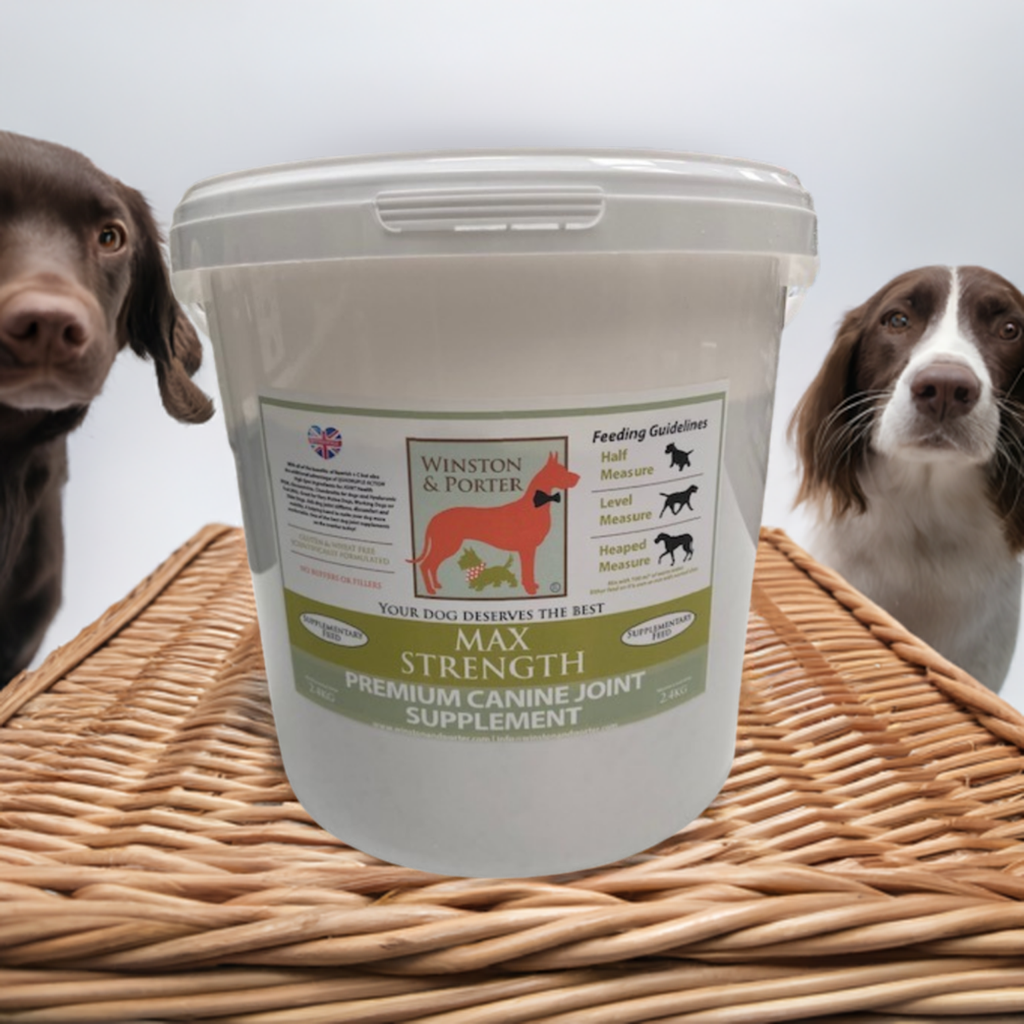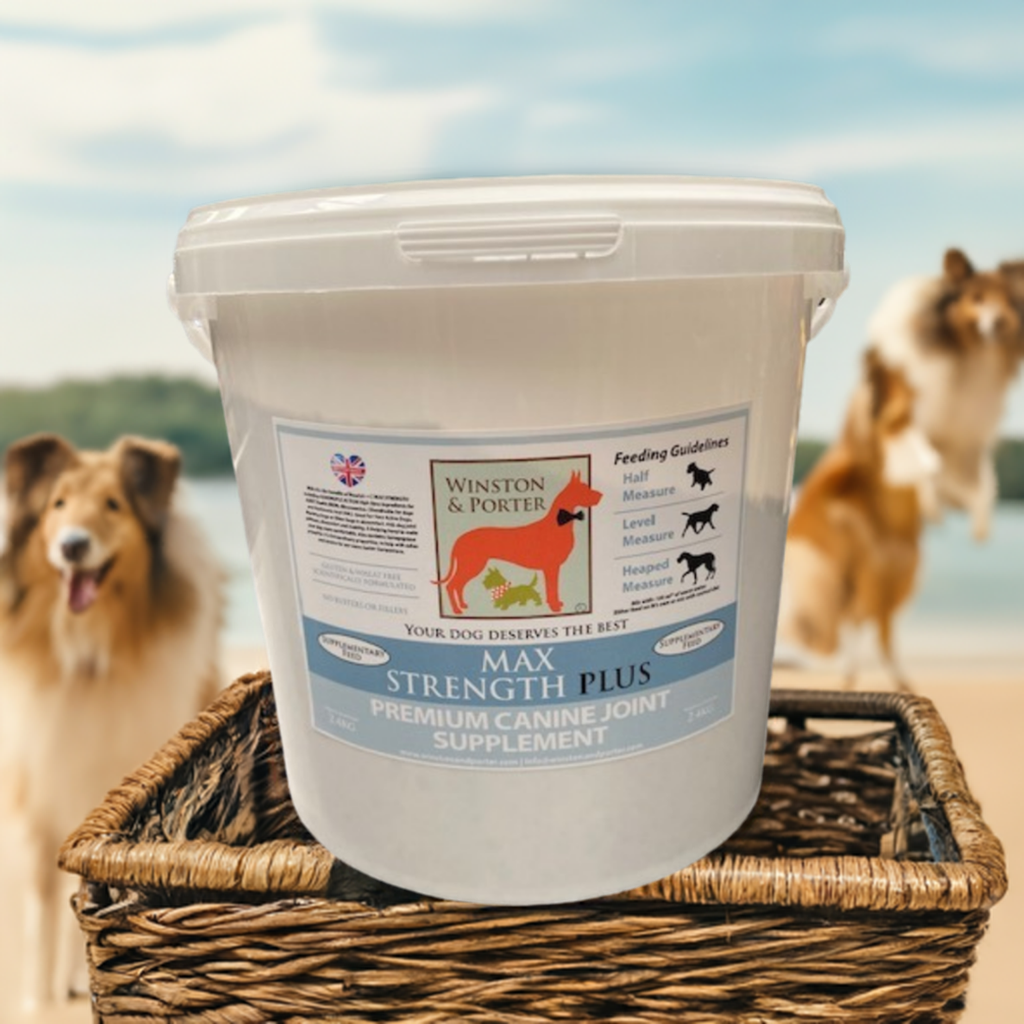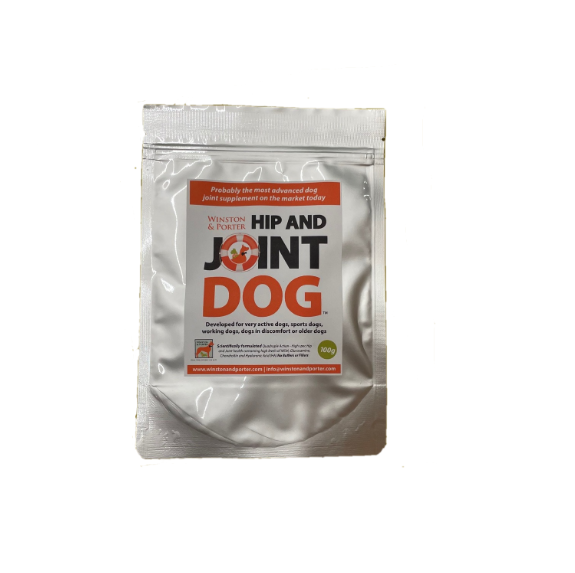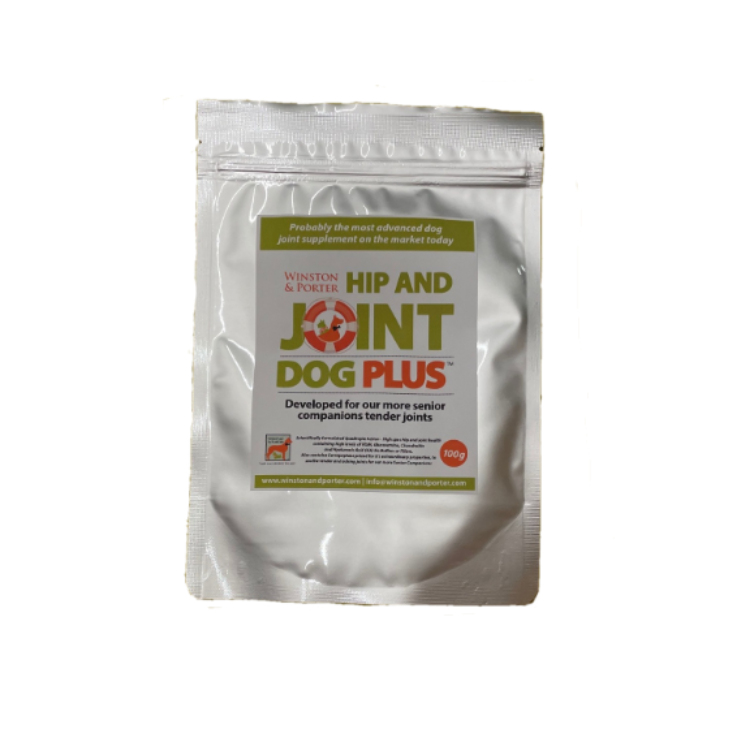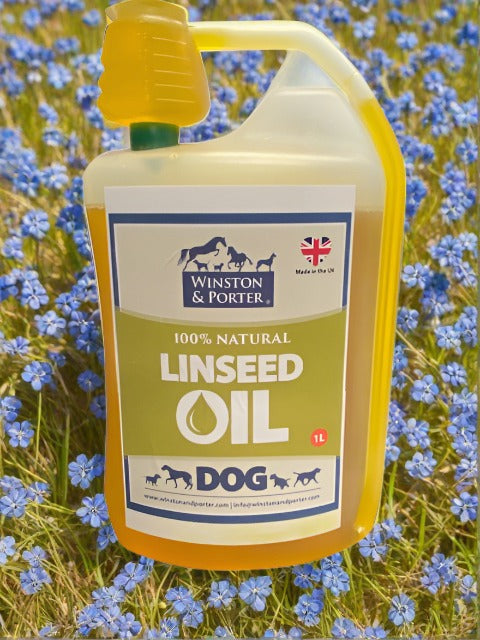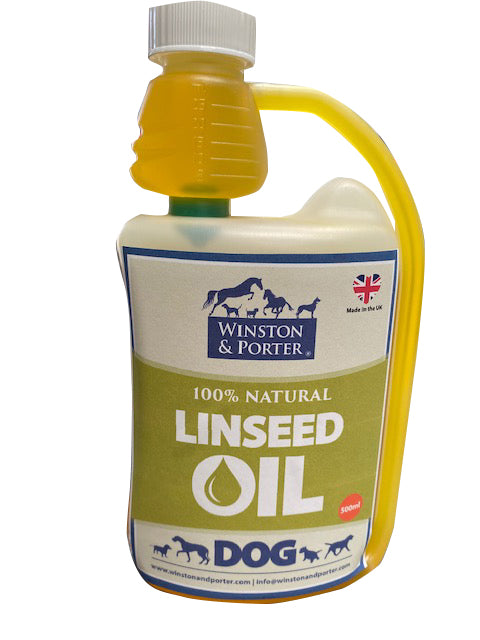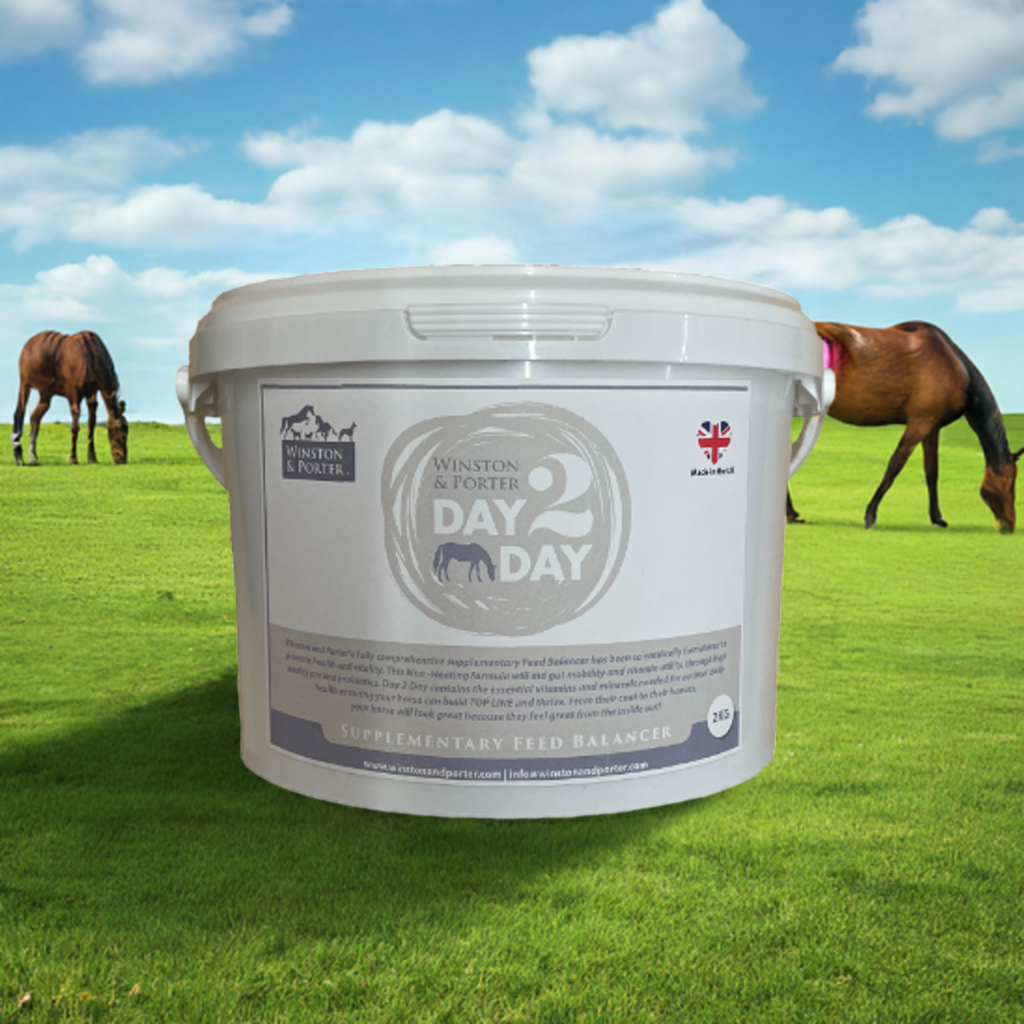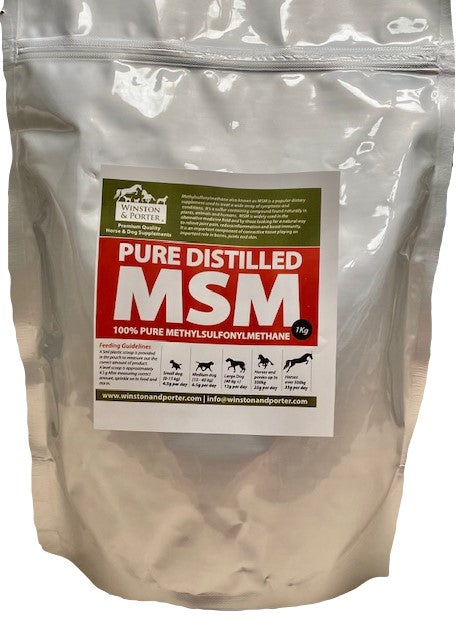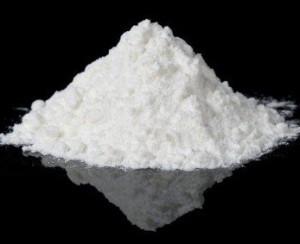
Does my dog have Joint Pain, Discomfort or Mobility Issues? How would you know as they can't tell you. . .can they?

80% of dogs over the age of 8 have arthritis. Caring for a dog with arthritis can be challenging, but also rewarding. Arthritis is a condition that causes pain and stiffness in the joints, and can be very uncomfortable for your beloved pet.
Canine arthritis Management (CAM) recommends a multimodal treatment plan- an important part of which is the use of effective supplements. When describing Canine arthritis, they say:
Osteoarthritis (OA) is the most common cause of chronic pain in dogs. It affects 80% of dogs over the age of 8 years old, and potentially up to 35% of dogs of all ages. It is considered a welfare concern in companion/working animals such as dogs, especially if left untreated.
Hannah Capon- award winning Vet and founder of Canine Arthritis Management UK says:
“It’s heart-breaking but arthritis is the major cause of elective euthanasia for dogs in the UK. Four out of five dogs over the age of eight are affected and there is no cure.
A study by a vet in America found that 60% of dogs that came through their door for other problems had arthritis”.
What is Arthritis in Dogs?
Arthritis is often considered to be a disease of old age, however unfortunately it can occur in dogs of any age. This is due to the fact that developmental joint disease, which is a disease of younger dogs, is the leading cause of arthritis. Developmental joint disease results in imperfectly fitting joints and subsequent early onset degenerative changes. These changes progress to arthritis, resulting in painful, immobile, and grossly abnormal joints.
Arthritis simply means “inflammation of the joints”, but in truth the disease is much more complex than this.
Arthritis is commonly and mistakenly described as a disease of the cartilage of a joint. It is in fact a disease that affects all structures within the joint, and if left unmanaged, it can lead to complete joint failure.
Unfortunately, there are other detrimental effects of the disease, for example; decreased or altered use of the back legs will lead to less propulsion (driving movement forward) and stability. The dog’s spine, front legs and neck will work hard to compensate and maintain the dog’s mobility. Over time this can lead to secondary issues within these structures which also cause pain dysfunction, and arthritic changes within these joints.
One of the, less known but most disturbing, facts about canine arthritis (indeed all arthritis) is that the dog's brain is being constantly bombarded with messages that it is in pain- this has considerable consequences. Repetitive messages to the pain signaling pain, cause the nervous system to effectively 're-model' to improve efficiency. This means that the body becomes better at receiving the pain signals and receives them with greater sensitivity- leading to more pain being felt. Pain signals cause stress, stress causes the body to release cortisol – After adrenaline, a stressed dog's body secretes cortisol. This is a stress hormone that increases the amount of fatty acids and glucose in the blood, so that the dog's muscles and organs are prepared for activity.
Excess cortisol can put a dog at risk of several serious conditions and illnesses, from kidney damage to diabetes, and can be life-threatening
Caninearthritis.co.uk state that:
“Once this occurs effective pain management must address both the original source - the inflamed arthritic joints - as well as the hyper-reactive nervous system. This is likely to require multiple simultaneous medications and/or therapies. The phenomenon of central sensitisation makes effective disease management more complicated”.
Fortunately, there are many natural remedies and treatments that can help to ease the pain and discomfort of arthritis in dogs. Canine Arthritis Management, through proper nutrition, exercise and supplementation, can help to keep your dog’s arthritis under control and provide them with the best quality of life possible. Additionally, there are several medications, therapies and other treatments that may be prescribed by your vet, depending on the severity of your dog’s arthritis. With the right care and attention, you can help your dog to manage their arthritis and improve their quality of life.
The most common forms of arthritis in dogs include: developmental joint disease (as above) osteoarthritis, rheumatoid arthritis and hip dysplasia. Osteoarthritis is a degenerative disease that affects the joints, cartilage and surrounding ligaments. Rheumatoid arthritis is an autoimmune disease that attacks the joints and surrounding tissues. Hip dysplasia is a congenital condition that can cause the hip socket to become too shallow, causing abnormal wear and tear on the joint. Arthritis can be very painful and stressful for dogs, as it greatly impacts their mobility.

Signs and Symptoms of Arthritis in Dogs
It is impossible to know by looking at a member of your family/friends and knowing that they are in pain (unless the pain is severe). The way we know that they have aches and pains, is if they choose to tell us. Many people are very stoic, which is why people with long term conditions often go unnoticed. Dogs are incredibly keen to please and so happy to see us that the last thing they want to do is look forlorn about any discomfort. Early arthritis in dogs is often picked up during an investigation for something else, dogs are the last to lament and complain.
Just because your dog looks OK and is not limping- it does not mean that there are not degenerative changes occurring- changes that will be causing increasing discomfort. The first time many people learn that their dog has canine arthritis is when the disease is advanced and they are in considerable pain, sadly, prior to this point they will have been struggling in silence. Any dog can develop arthritis, regardless of age or breed. Some common signs of marked arthritis in dogs include:
- Changes in appetite
- Weight loss or weight gain
- Changes in behavior
- Difficulty walking
- Changes in breathing
- Pain and discomfort
- Swelling and stiffness in the joints
Arthritis in dogs can cause significant discomfort. The disease can result in inflammation of the joints, dogs with sore legs, as well as stiffness and pain. If your dog is experiencing any of these symptoms, it is important to see a vet and/or source a good canine joint supplement. Arthritis can be very painful, and can be managed with medications and natural remedies. In some cases, surgery or other treatments may be necessary.
Causes of Arthritis in Dogs
There are many different causes of arthritis in dogs. Some breeds are more prone to certain types of arthritis (particularly large breeds), but any dog can develop arthritis at any time. Arthritis can be caused by an injury, genetics, poorly fitting joints, obesity, aging, compromised immune system and certain types of medication. Symptoms of arthritis only often become noticeable when the disease has taken hold.
Additionally, obesity can cause joint pain in dogs, as extra weight puts stress on the joints. And some medications can cause joint pain or inflammation, including certain medications used to treat heart disease and gastrointestinal issues.
Dog Arthritis Treatment and Natural Remedies
How do natural remedies help? There are a myriad of different products on the market that claim to answer all of the issues above. It is important to note that arthritis can not be cured - the goal is to manage the progression and alleviate the impact. We want our dog's to live healthy lives, for as long as possible.
What is a nutraceutical?
Nutra = nutrient, ceutical = pharmaceutical; put simply, it means food with believed health promoting, disease preventing, or medicinal benefits beyond their obvious nutritional use. Nutraceuticals focus on prevention and symptom alleviation rather than cure. A nutraceutical can be a food itself, or products extracted from it and sold individually or in combination.
It is a very exciting area of medicine as the use of nutraceuticals implies health improvements without risks of side-effects. They also have a different route into the body which puts less pressure on the kidneys.
It can be confusing as so many companies make bold claims and state that they contain 'key ingredients', at times 'contain' sadly means that they have a small, sub-therapeutic, amount- but it allows the company to put the ingredient on the label. For joint health there are four recognised key ingredients: Glucosamine, Chondroitin, Hyaluronic Acid (HA) and Methylsulfonylmethane (MSM) . Should you be considering a product for optimum joint health they must contain these ingredients (alongside others) Some of the above are incredibly expensive- so are added in 'token' levels so that they can be listed as an ingredient. At Winston and Porter we recognised this and that is why our canine (and equine) joint supplements contain all of the above four ingredients in high levels. That is why they work!
Fatty acids, amino acids, vitamins and minerals all play an active role in the management of this debilitating disease.
As an owner, it is important to look carefully at the labels and amounts- so that you can make an informed decision about the care of your dog.
It is important to highlight that probably the most significant impact on the management of your dog's arthritis is maintaining a healthy weight.
Several key nutrients can help to ease the symptoms of arthritis in dogs. It is important to feed your dog a well-balanced diet, including all essential nutrients. The best diet for dogs with arthritis is one that is high in omega-3 fatty acids and low in protein (while avoiding too much soy or corn). It is also important to avoid feeding your dog foods that are high in preservatives, artificial ingredients and added sugars (take the time to look at the label ingredients on the dog food you use - you may be surprised!).
Some good foods to feed dogs with arthritis include: Salmon, Tuna, Broccoli, Spinach, Carrots, Sweet potatoes, Blueberries, Cranberries, Apples, Pears, Celery, Walnuts, Flaxseed, Pumpkin seeds, Chia seeds, Sunflower seeds, Whole grains, Herbs, Fruits, Natural oils, Honey, Turmeric, Ginger Root, and Almonds (this is not an exhaustive list).
Exercise for Dogs with Arthritis - Keep moving, keep improving!
Exercise is one of the best ways to ease the symptoms of arthritis in dogs. It can help to improve joint health, strengthen muscles and boost the immune system, as well as reduce inflammation. It is important to choose an appropriate form of exercise for dogs with arthritis. Swimming or hydrotherapy is often recommended for dogs with joint pain, as it is low impact and water is very soothing. However, excessive swimming can lead to muscle weakness and weight loss, so it is important to swim on a limited basis. Some other forms of low impact, yet effective exercise for dogs with arthritis include, gentle walks - keeping your dog in a harness rather than a collar - light manual therapy - treadmills - specialised dog equipment - dog strollers - dog wheelchairs - massage therapy and acupuncture.
Dogs love to run and jump for a stick or ball, unfortunately this can have a hugely detrimental effect. The joints twist and turn, grinding and grating. The pain is not felt at the time due to the rush of adrenaline and endorphins released by the dog. Every impact on the joint will have an impact on the disease.
It is not all bad news.....
The good news is that here at Winston and Porter, we have developed some amazing joint supplements which help to prevent, treat and ease arthritis in your dog. Innovation and improvement are the cornerstone of our practice-with our products, service and results Just look at our 5 Star reviews on TrustPilot! . We source only the very best natural human-grade ingredients. And our supplements really do work, mainly due to the combination of essential joint ingredients present in high levels in our products. Our canine joint supplements include Max Strength, Max Strength Plus, Hip and Joint Dog and Hip and Joint Dog PLUS. Our PLUS versions of these two supplements contain a highly efficacious natural anti-inflammatory and pain reliever called serrapeptase, which has proved effective for dog joint pain relief. You will not see serrapeptase being used by many companies as they deem it 'cost prohibitive' but we believe the benefit it offers is worth any loss in profit!
Our products are now stocked in a number of UK and European outlets including the Dog Store, owned by one of the leading dog trainers in the UK, Stan Rawlinson. He says,
"These are the products I am happy to recommend. As you may see on my website I do not have too many recommendations or adverts on my site.
I would have to really be bowled over before I recommend any product. This is one of the exceptions."
Every day we receive heart-warming feedback about the improvement dogs are showing, how they are able to enjoy things again that they used to love but stopped due to being curtailed by pain. We hear phrases like 'Thank you, you have given me my dog back'
and 'Knowing I will have him around for longer has improved my life as well as his'

The prognosis for Dogs with Arthritis
We love our dogs and it is heartbreaking to know that many are struggling in silence due to their amazingly positive attitude to life. They can not speak up and moan about aching joints and if they did, we would rush to help. If 8 out ten dogs over the age of 8 have marked arthritis, it is safe to assume that your dog may have arthritic changes with all of the complications already discussed. The old adage prevention is better than cure, is definitely true and supporting your dog's joint health can only bring benefits. There are no risks to providing the key ingredients needed for joint health, but there are huge benefits and in doing so you may prolong the quality of your dog's life.
The prognosis for dogs with arthritis is variable based on the severity of the disease and the treatment options chosen. Some dogs will experience mild joint pain that can be managed with diet and exercise, while others may require medication and surgery. It is important to maintain a healthy diet, including the right amount of vitamins and minerals, as well as exercise, to ease the symptoms of arthritis in dogs. If your dog has arthritis, it is important to be extra gentle when handling them. Avoid allowing them to jump or climb stairs, as this can put unnecessary pressure on their joints.
If you have any questions about anything in this article then please feel free to contact us at info@winstonandporter.com or call on 0191 3790077.
written by Kelly McManus


